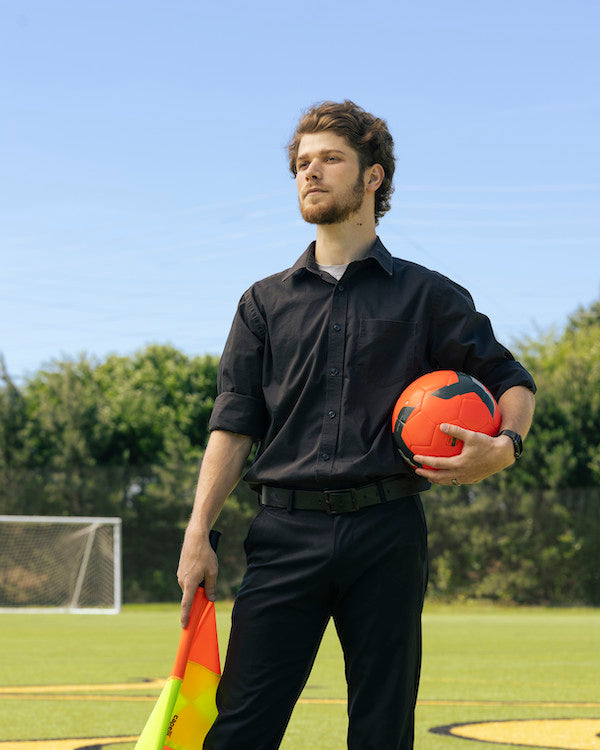
Does holding a flag affect Assistant Referee Performance?
Share
As a soccer referee, I’ve always been fascinated by the intricate details that go into ensuring fair play on the field. However, it wasn't until I came across William Reed’s groundbreaking research that I truly appreciated the physical demands placed on us officials. Reed, a recent Kennesaw State University graduate, has not only elevated the conversation around soccer referees but also pioneered new research in the field of exercise science.
Reed’s master’s thesis, “Kinetic and Kinematic Effects of Unilateral Flag Carrying on Referee Sprinting and Agility Performance,” addresses a critical gap in our understanding of the physical performance of referees. His research, which earned him accolades at the Symposium of Student Scholars and the Wellstar College of Health and Human Service’s Research and Engagement Day, as well as a win in the Graduate College’s Three-Minute Thesis competition, highlights the significant impact that carrying a flag has on an assistant referee’s running form.
In collaboration with KSU’s associate professor Garrett Hester, Reed discovered that key performance variables—such as force production, acceleration, velocity, and power—are significantly reduced when referees carry a flag. This empirical data underscores the physical challenges we face, which have often been overlooked in favor of focusing on players’ performance.
Reed’s work also received mentorship from Kevin Huet, a senior lecturer at KSU and an experienced soccer official himself. Huet’s enthusiasm for Reed’s research was palpable, providing contacts and support that enabled Reed to conduct extensive studies involving officials from youth leagues to those certified by FIFA.
What stands out in Reed’s approach is his intent to expand the knowledge base beyond mere officiating accuracy. His thesis paves the way for future research into the conditioning and sprinting mechanics of referees, potentially influencing how we train and prepare for matches. Reed’s aspirations to publish his findings in prominent exercise science journals and perhaps pursue a doctoral degree in this field speak to the untapped potential of his work.
Reed’s journey is a testament to the power of academic curiosity and institutional support. His message is clear: if you have a passion, pursue it. With the right guidance and determination, you can break new ground in your field. For us soccer referees, Reed’s research is not just a thesis; it’s a call to re-evaluate and enhance our physical conditioning to perform at our best on the field.
As a referee, I find Reed’s work inspiring and a much-needed addition to our understanding of the game. His research not only benefits officials but also contributes to the broader discourse on human performance in sports. Here’s to hoping that his findings lead to more investments in the conditioning and training of referees, ensuring we’re as prepared as the players we oversee.
You can download his research paper here: https://digitalcommons.kennesaw.edu/masterstheses/5/?utm_source=digitalcommons.kennesaw.edu%2Fmasterstheses%2F5&utm_medium=PDF&utm_campaign=PDFCoverPages